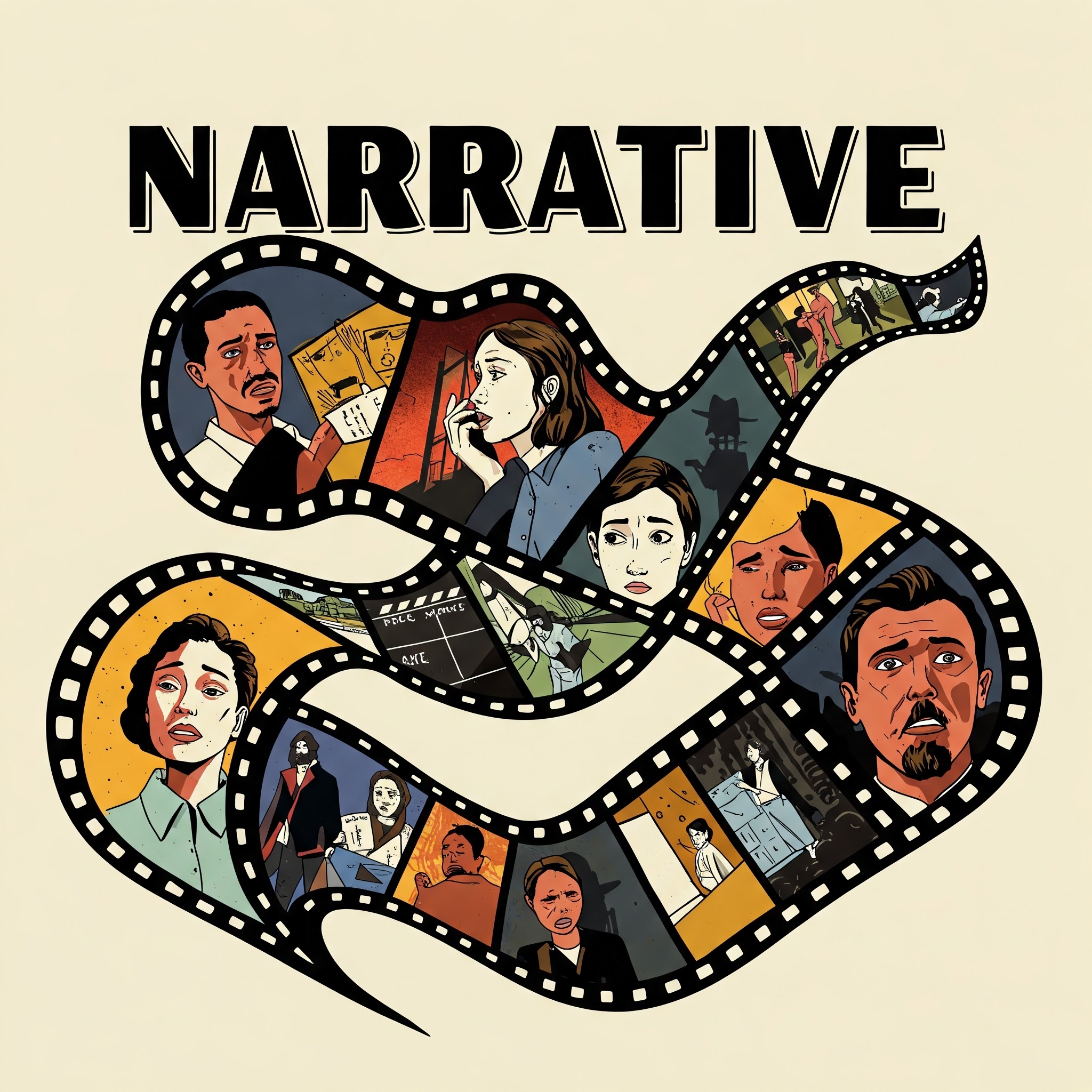Narrative
Definition
Narrative is a noun and an adjective. As a noun, it refers to a spoken or written account of connected events; a story. As an adjective, it describes something related to or characteristic of storytelling.
Parts of Speech
- Noun
- Adjective
Pronunciation
American English
- IPA Pronunciation: /ˈnær.ə.tɪv/
- Respelling: NAR-uh-tiv
British English
- IPA Pronunciation: /ˈnær.ə.tɪv/
- Respelling: NAR-uh-tiv
Etymology
The word "narrative" originates from the Latin "narrativus," meaning "suited to narration," derived from "narrare" (to tell or relate) and the root "gnarus" (knowing or skilled). It entered Middle English through Old French "narratif."
Derivatives
- Narration (noun)
- Narrator (noun)
- Narratively (adverb)
- Narratology (noun)
- Narrativize (verb)
Synonyms
- Story
- Account
- Tale
Antonyms
- None
Usage
The term "narrative" is used to describe both the process and product of storytelling. For example: "The novel’s narrative captures the struggles of its protagonist," or "The historical narrative is subject to interpretation."
Related Terms
- Plot: The main events of a story, devised and presented as an interrelated sequence.
- Theme: The central topic or idea explored in a narrative.
- Chronicle: A factual written account of important or historical events in the order of their occurrence.
Detailed Definitions
Noun
- A spoken or written account of connected events; a story: Refers to a structured account of events.
- Example: "The narrative of the movie was compelling and emotional."
- A particular perspective or interpretation of events: Refers to the way a story is told or framed.
- Example: "The political narrative shaped public opinion on the issue."
Adjective
- Relating to the act of telling a story: Describes the characteristics or techniques of storytelling.
- Example: "The author used a narrative approach to explore the character’s inner thoughts."
narrative



🇨🇳 Mandarin
- 故事 (story)
- IPA: /kuː˩˧ʂɻ̩˧˥/
- Respelling: gùshì
🇮🇳 Hindi
- कथा (story)
- IPA: /kət̪ʰaː/
- Respelling: katha
🇪🇸 Spanish
- Narrativa (narrative)
- IPA: /narˈatiβa/
- Respelling: narrativa
🇫🇷 French
- Récit (narrative)
- IPA: /ʁe.si/
- Respelling: récit
🇸🇦 Modern Standard Arabic
- سرد (narration)
- IPA: /sard/
- Respelling: sard
🇧🇩 Bengali
- গল্প (story)
- IPA: /ɡɔlpɔ/
- Respelling: golpo
🇷🇺 Russian
- Рассказ (story)
- IPA: /rɐˈskas/
- Respelling: rasskaz
🇵🇹 Portuguese
- Narrativa (narrative)
- IPA: /nɐʁaˈtivɐ/
- Respelling: narrativa
🇮🇩 Indonesian
- Cerita (story)
- IPA: /t͡ʃeˈrit.a/
- Respelling: cerita
🇩🇪 German
- Erzählung (narration)
- IPA: /ɛɐ̯ˈtsɛːlʊŋ/
- Respelling: Erzählung
🇯🇵 Japanese
- 物語 (story)
- IPA: /monoɡa.tari/
- Respelling: monogatari
🇻🇳 Vietnamese
- Câu chuyện (story)
- IPA: /kaw˧˥ t͡ɕwəjən˧ˀ˨ʔ/
- Respelling: câu chuyện
🇰🇷 Korean
- 이야기 (story)
- IPA: /ijaːɡi/
- Respelling: iyagi
🇹🇷 Turkish
- Hikaye (story)
- IPA: /hiˈkaje/
- Respelling: hikaye
🇵🇰 Urdu
- کہانی (story)
- IPA: /kəˈɦaː.niː/
- Respelling: kahani





